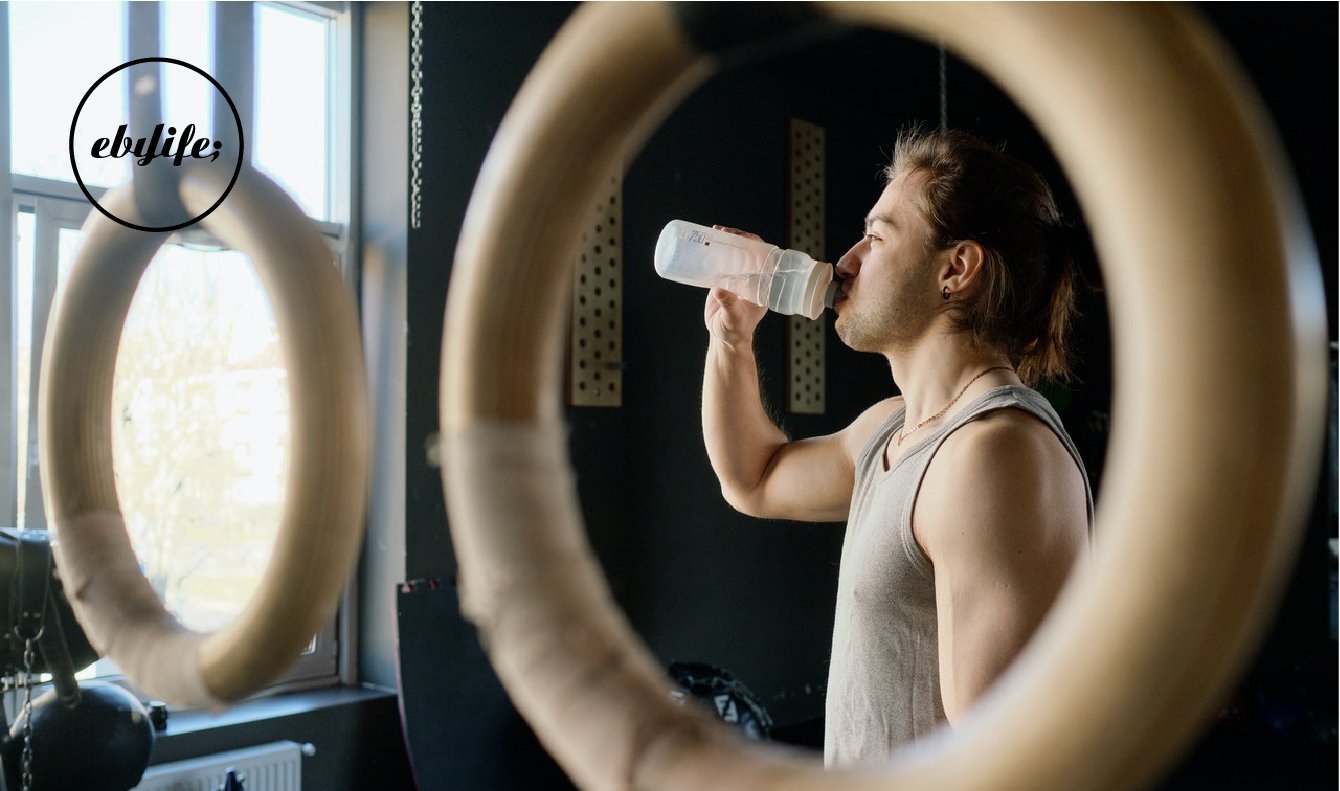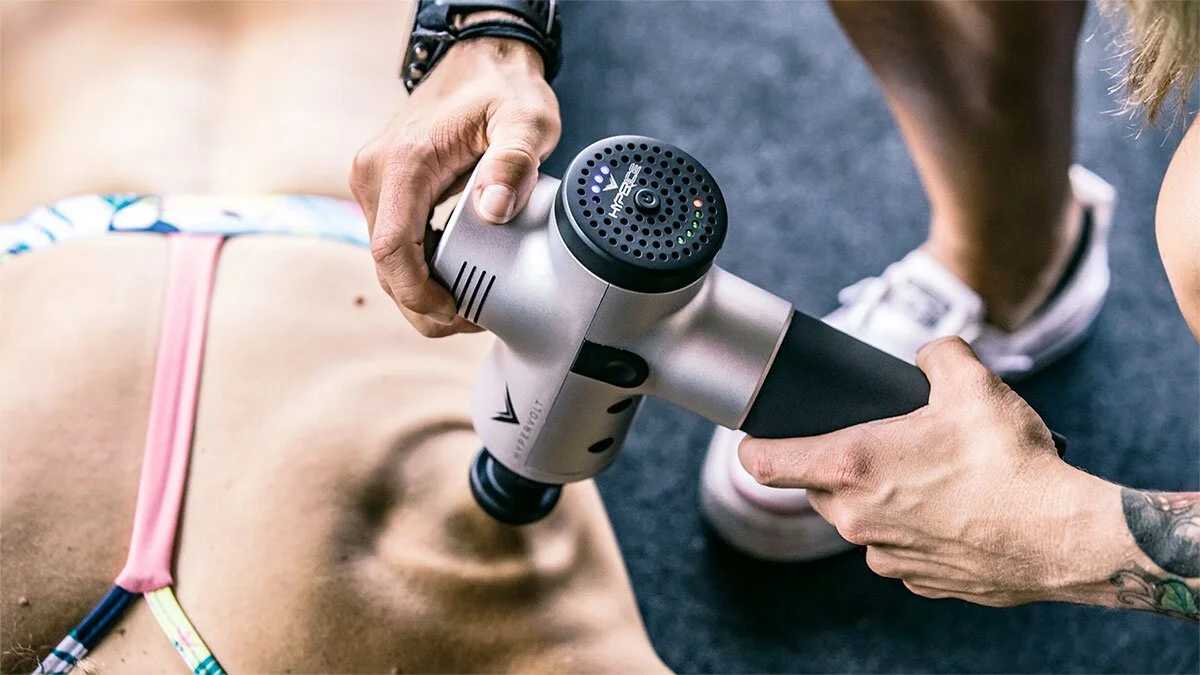Exercise Recovery: 10 Tips to help you recover faster between workouts
By Martin Ebner
Recovery and its importance in your fitness results should never be underestimated. In fact, your ability to efficiently recover from not just your workouts, but also between: rounds, sets, and reps can make all the difference between mediocre results and superstardom.
If you feel sore, tired, and unenthused in the hours and days following your workouts, it's possible that you're over-prioritizing activity and undervaluing the importance of recovery. Consider it a scale that hangs finely in the balance.
Here are 10 things +1 you can do right now to improve your recovery times:
1. Diet
Let's start with diet and arguably the most important factor when it comes to not only good health but your recovery. What you eat immediately following and in-between your workouts is vitally important to how quickly and effectively your body can recover from grueling sessions. Yes, our bodies are capable of incredible things but converting Haribo Gummy bears and junk food into nutritious food isn't one of them.
In order to perform well, you must give your body as much goodness as you can. That means a healthy and nutritious diet with an abundance of fruits and vegetables, legumes, lean proteins, and healthy fats from nuts, seeds, avocados, and olive oils.
2. Prioritize great post-workout nutrition
Your post-workout nutrition should be considered your most important meal of the day if you’re at all serious about your results.
Before I go on, I should clarify that not every “workout” requires post-workout nutrition. A stroll to the corner store and back does not. A one-hour high-intensity or strength training session does. If your perceived rate of exertion (RPE) for a workout is a 5/6 or above, you need to refuel.
While your exact nutritional needs will vary depending on a variety of factors (goals, weight, sex, age, etc), as a general rule, aim for a 2:1 ratio of carbs to protein and make sure to consume it within an hour of finishing your workout. The sooner you do, especially when it comes to strength training, the quicker your body can start the recovery process.
Related: Post workout nutrition for big results
3. Supplement with Supplements
Whether or not you should take supplements is entirely dependant on you and your diet. If you feel that you can't get everything you need from diet alone, you may want to consider taking supplements as a safety net. Additionally, if you struggle to stomach food in and around your workouts, supplements can be a great option.
Performance Lab has a fantastic range of products for sports performance.
4. Stretch it out
Stretching might not necessarily be the most enjoyable or time-efficient way of speeding up your recovery but it's definitely one of the most effective. By adding just 10-minutes or so of stretching per day (it doesn't have to be immediately following a workout) you'll lengthen the muscles which can improve mobility and facilitate the release of trapped lactic acid which can reduce the amount of stiffness and pain you feel following exercise.
5. Get a massage
Perhaps not ideal given our current circumstances (thanks very much COVID-19) but once we do return to some form of normality, get yourself a regular massage. Not only do they feel absolutely amazing and you're totally worth it, but research also shows they help reduce inflammation, improve blood flow, and reduce muscle soreness. How deep you go is up to you!
6. Get a massage gun
If you can't get out for a regular massage, get yourself the next best thing, a massage gun. They offer what's known as percussive or vibration therapy. Whilst being relatively new to the market, early studies suggest they help speed up recovery and reduce symptoms of DOMS (Delayed onset muscle soreness).
I have to say, I have one and it's not only oddly satisfying, it's great for hitting super-targeted problem areas.
7. More H20
Even mild hydration can negatively impact not only your performance during exercise, but it can also hinder your body’s ability to remove metabolic waste that can build up during a tough workout.
Make sure to drink a minimum of 2 liters a day. The easiest way to do this is to fill up a 2-liter bottle each day and not go to bed until it's all gone!
8. Less boozing
Sorry to be the bearer of bad news but alcohol is not only bad for lifestyle performance, it's terrible for post-workout recovery. Alcohol is a diuretic which as we covered above, is bad for hydration and ultimately recovery. Stick to the softies but if you must, try not to drink the night before a workout or go 1:1 alcoholic drinks to water.
9. Rest your muscles
More workouts don't necessarily equal better results. Think quality over quantity. Your body recovers and grows stronger when it's resting, not when it's being hammered. While certain factors such as workout intensity, age, fitness level, etc are important for determining how much rest you need, the best way to know is by connecting and listening to your body. If you’re sore, knackered, and unenthused, give it an extra day. You'll come back stronger and more determined tomorrow!
Note: If you feel that you're not able to progress, it could be a symptom of overtraining. In which case, you may need to take a de-load week or restrategize.
10. Active recovery and de-loading...
Active recovery and de-loading are great ways to recover whilst remaining active. The goal of this is to increase blood flow and improve circulation which can help reduce muscle pain and tension and recover energy.
Think walking, light cycling, stretching and mobility work. If your focus is weight training, take a de-load week. This is half of what you would normally do.
11. Ice baths and cold showers
I was only going to write 10 but I just had to include the most painful one for last.
Ice baths are all the rage. If you've ever watched a cross-fit or sports documentary, you've likely seen all the athletes suffering their way through an ice bath session immediately following a workout.
Ice baths and freezing cold showers can help reduce inflammation and improve recovery by changing the way blood and other fluids flow through your body. This process helps flush away metabolic waste post-workout by increasing blood flow and flooding your cells with nutrients and oxygen which theoretically can help your body recover.



